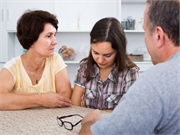SUNDAY, May 17, 2020 (HealthDay News) — The coronavirus pandemic has been tough on Americans of all ages, but parents need to watch their teens for signs of depression, anxiety, anger and other emotional and mental health problems, a leading pediatricians’ group says.
“It’s normal for teens to feel sad during this time, crying sometimes because they miss their friends or because sports and musical productions were canceled,” said Dr. Sara Goza, president of the American Academy of Pediatrics (AAP).
But some teens may find it especially difficult to cope, and parents should watch for the following signs that their teen may need more support, according to the AAP:
- Changes in mood, ongoing irritability, or feelings of hopelessness or rage.
- Changes in behavior, such as stepping back from personal relationships.
- Changes in weight or eating patterns.
- Changes in appearance, such as lack of basic personal hygiene.
- A lack of interest in activities the teen previously enjoyed.
- Difficulty falling or staying asleep, or starting to sleep all the time.
- Problems with memory, thinking, or concentration.
- An increase in risky or reckless behaviors, such as using drugs or alcohol, and thoughts about death or suicide, or talking about it.
Parents should keep lines of communication open and check in with their teens often to discuss how they’re feeling and managing, and to watch for signs of mental health struggles.
It’s important for parents to try to stay positive and consistently reassure teens that a brighter future lies ahead.
“We urge parents who are concerned to call the pediatrician and ask for help checking on the teen’s social and emotional health. This may be something that can begin with a telehealth visit, and your pediatrician is in the best position to know that,” Goza said in an AAP news release.
Provide your teen with privacy to talk with the pediatrician so they have the chance to speak as openly as possible.
Any talk about suicide should be taken seriously. Make your home safe by removing weapons and ammunition from the house and putting medications in a locked cabinet, the AAP advised.
Seek help by calling the National Suicide Prevention Lifeline at 1-800-273-TALK or contacting the Crisis Text Line by texting ‘TALK’ to 741741.
More information
Unicef has more on helping teens cope with the coronavirus pandemic.
Copyright © 2026 HealthDay. All rights reserved.

